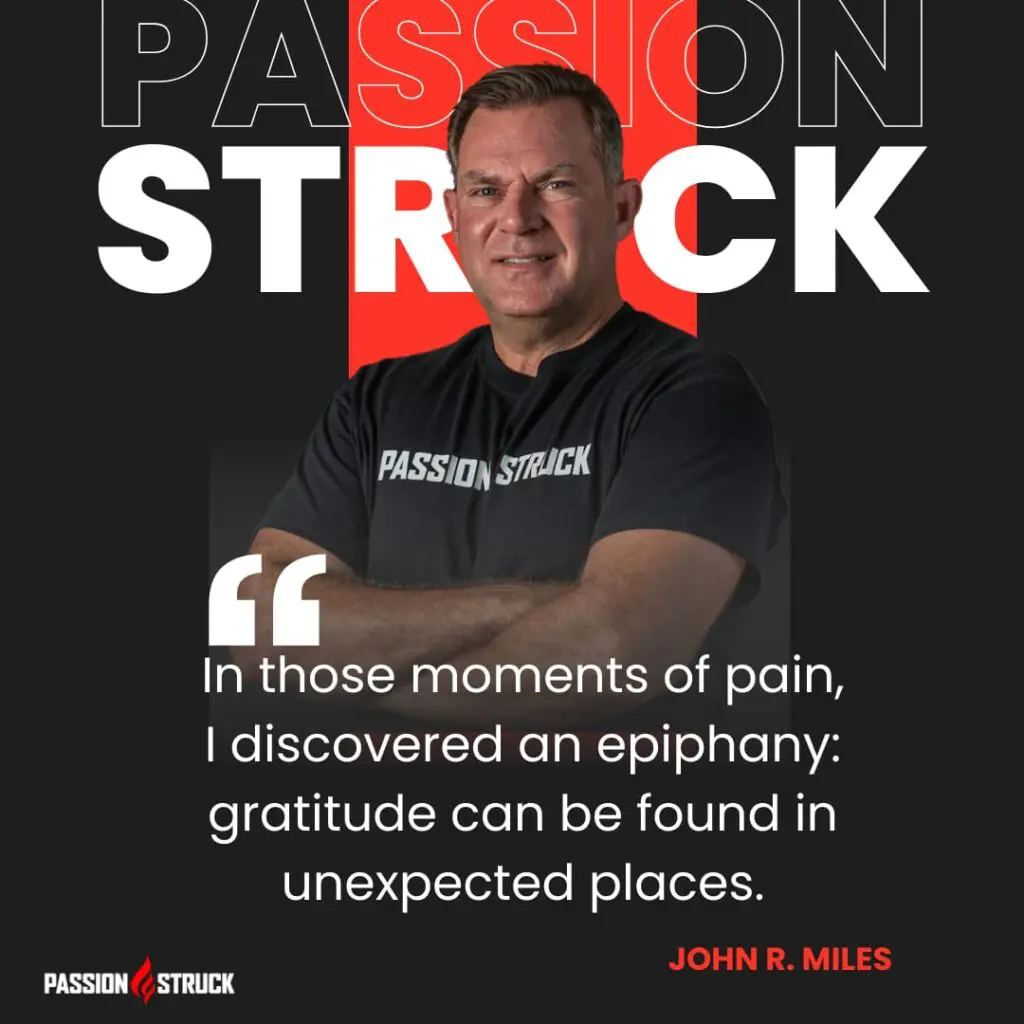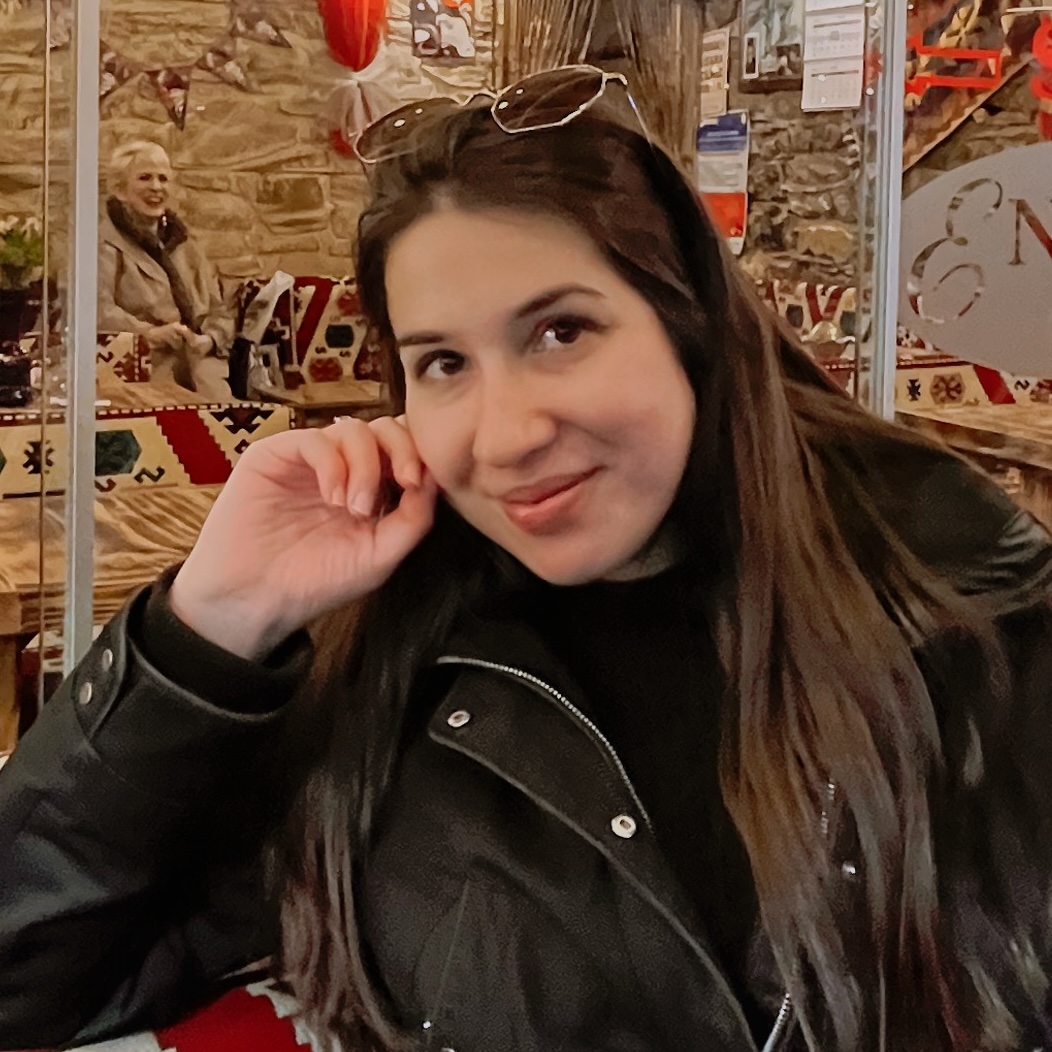The Healing Power of Gratitude: 3 Steps to a Happier You
Have you ever found yourself in a tough spot and wondered how some people manage to stay positive? How do they find the strength to smile and express gratitude when everything seems to be going wrong? Today, we’re diving into the healing power of gratitude and how it can truly transform our lives, even during the hardest times.
Gratitude isn’t just something we say around the dinner table on Thanksgiving or after receiving a gift. It’s a powerful tool that can reshape our outlook, help us cope with challenges, and even improve our health. The healing power of gratitude goes beyond just thinking happy thoughts; it’s backed by science and can make a real difference in how we navigate life’s ups and downs.
Imagine facing a moment when everything feels lost—like standing in the wreckage of your home or saying goodbye to a loved one. In those moments, feeling grateful might seem impossible. But it’s often in these darkest times that the healing power of gratitude can shine the brightest.
Research shows that practicing gratitude can lower Stress, improve Sleep, and boost our overall well-being. More importantly, it helps us shift our focus from what we’ve lost to what we still have, from our pain to our strength, and from fear to hope.
So today, let’s explore how embracing the healing power of gratitude can help us not just survive tough times but actually thrive. Whether you’re dealing with loss, facing challenges, or just looking for a bit more joy in your life, understanding gratitude can be your key to unlocking resilience and finding unexpected happiness.
Join me as we uncover how gratitude can transform our lives, even in the face of profound loss and adversity.
The Transformative Journey: Loss, Love, and the Healing Power of Gratitude
Life has a way of throwing unexpected challenges our way, and this year has been a testament to that. Just a few years ago, my life felt stable and full of promise. I was deeply engaged in my podcast, Passion Struck, exploring the science of intentionality and helping others create lives of significance. My family was healthy, my career was thriving, and I felt a sense of purpose in my work.
Then came the first blow. My sister, my confidante and best friend, was diagnosed with pancreatic Cancer. For several years, we fought alongside each other through her treatments, celebrating small victories and hoping for brighter days. This year, however, everything took a sudden turn for the worse. After a brief period of optimism with a new treatment trial, her condition deteriorated rapidly. I remember visiting her one last time; just hours after I left her side, she passed away. The weight of that loss felt unbearable.

As if that heartbreak wasn’t enough, just four months later, Hurricane Helene struck our community unexpectedly. My fiancé and I had recently moved into our new home in June, excited to start building our lives together. We loved it and had just begun to call it our home when the storm hit. In a matter of hours, we faced significant damage from flooding that left us feeling vulnerable and displaced.
The emotional toll of these losses was overwhelming. Grief for my sister consumed my thoughts while the destruction of our home stripped away my sense of Security. It felt like I was drowning in sorrow and uncertainty. I struggled to find hope or meaning amidst the chaos that surrounded me.
There were days when simply getting out of bed felt like an insurmountable task. The future that had once seemed bright now felt shrouded in darkness. I questioned everything—my purpose, my resilience, and even the messages of hope and intentionality I had shared with my listeners for years.
In those moments of despair, the concept of the healing power of gratitude felt distant and almost unattainable. How could I possibly feel grateful when it seemed like my world was crumbling? The idea of finding something to be thankful for amidst such profound loss felt not just challenging but impossible.
Yet it was during this crucible of adversity that I began to realize that embracing gratitude could be my lifeline. As I stood at this crossroads of grief and chaos, I faced a choice: to succumb to despair or to seek out moments of light amidst the darkness.
Little did I know that this choice would lead me on a transformative journey—one that would reveal the true depth and strength found in the healing power of gratitude. It became clear that even in my darkest moments, there were still glimmers of hope worth holding onto.
Shifting Perspectives: Embracing Both/And Thinking Through Grief
As I stood at the crossroads of grief and uncertainty, I found myself in a quiet moment of reflection—one of those nights when the weight of everything felt almost unbearable. I kept thinking about the loss of my sister, and then something shifted. Instead of focusing solely on the pain of her absence, I started to reflect on the incredible gift of having had her in my life for 50 years.
Fifty years of laughter, love, and countless memories. Those weren’t just moments to mourn—they were moments to celebrate. I thought about the late-night talks, the holidays we shared, and the ways she shaped who I am today. That perspective changed everything. Suddenly, I wasn’t just grieving her loss; I was deeply grateful for all the time we had together.
This shift reminded me of a concept I explore in my book, Passion Struck: the power of Both/And Thinking. So often, in times of crisis, we feel like we have to choose between our emotions—joy or sorrow, hope or despair. But Both/And Thinking allows us to hold two truths at once. I could feel the deep sadness of losing my sister and, at the same time, celebrate the incredible life we shared. That realization opened a path to healing I hadn’t expected.
Then came another moment of Clarity amidst the chaos of Hurricane Helene. While the floodwaters damaged our family home, I felt an overwhelming sense of gratitude that no one had been hurt. That one thought—that gratitude—became a lifeline, helping me see beyond the immediate devastation and focus on what truly mattered.
What I learned was this: gratitude doesn’t erase pain, but it gives us a way to navigate it.
By allowing both grief and gratitude to coexist, I found a way to honor my sister’s memory and stay grounded through life’s unpredictability. It’s not about forcing yourself to feel “grateful” when things are hard—it’s about noticing the moments, even small ones, that bring light into the darkness.
The Science of Intentional Gratitude
As I leaned into gratitude during those difficult times, I became curious about why it was helping me find strength and clarity. What was it about this practice that allowed me to shift from despair to hope, even when my world felt like it was crumbling? This curiosity led me to explore the science behind gratitude—and what I discovered was transformative..
Understanding Gratitude’s Evolutionary Roots
Gratitude isn’t just about being polite or saying “thank you”—it’s so much more than that. It’s a fundamental part of how we’ve survived and thrived as humans. Gratitude helps us form stronger bonds, build trust, and create meaningful connections, which are the foundation of thriving communities. When we express the healing power of gratitude, we’re doing something powerful: we’re reinforcing Relationships and laying the groundwork for mutual support and cooperation.
Researchers like Robert Emmons and Michael McCullough explain gratitude as a two-step process. First, we recognize that we’ve received something positive, and second, we acknowledge the external source behind it. This acknowledgment creates a ripple effect, reinforcing relationships and encouraging more acts of kindness and support.
One fascinating framework is the ‘Find, Remind, and Bind’ theory. Gratitude helps us find allies, remind ourselves of their kindness, and bind us closer to them. This is how gratitude strengthens relationships and creates a sense of belonging, which is vital for emotional health and well-being.
It’s not just a human thing either. In the animal kingdom, we see behaviors like reciprocal altruism—helping others with the understanding that support may come back when needed. Scientists believe this instinct to repay generosity is a form of gratitude that has evolved over time to enhance survival.
Even young children show the beginnings of gratitude, learning as they grow how to express it fully and build stronger social connections. It’s clear that gratitude is more than just an emotion—it’s a tool for resilience, connection, and community strength.
By understanding these evolutionary roots, we see why gratitude is such a fundamental part of the human experience. When we practice it, we’re not just boosting our own well-being—we’re contributing to stronger, more connected communities.
Harnessing the Neuroscience of Gratitude
Did you know that gratitude doesn’t just make us feel good—it actually changes our brains? Here’s what’s fascinating: when we practice gratitude, we activate the brain’s pleasure and reward centers, like the ventral tegmental area and the nucleus accumbens. These areas release dopamine, the chemical that makes us feel good, boosting our overall sense of well-being. It’s like giving your brain a natural happiness boost.
And it doesn’t stop there. Gratitude literally helps rewire our brains for resilience. This process, called neuroplasticity, strengthens the pathways that help us think more positively and regulate emotions. So, every time you focus on what you’re grateful for, you’re training your brain to handle challenges with more grace and optimism.
It also helps calm our stress responses. People who practice gratitude show less activity in the amygdala—the part of the brain that processes fear and stress. That means less Anxiety and more emotional balance.
And here’s a bonus: gratitude isn’t just good for your brain—it’s good for your body, too. Research shows that grateful people report fewer physical symptoms, better sleep, and even healthier Lifestyle choices. Think about it: when you’re grateful, you’re more likely to eat well, Exercise, and take care of yourself.
So, gratitude isn’t just a nice thing to have; it’s a powerful tool for mental, emotional, and physical health.
Gratitude in Action: A Thanksgiving Reflection
Armed with an understanding of how gratitude transforms our brains, strengthens our connections, and supports resilience, I began reflecting on how it shaped my own journey through moments of profound loss and hardship. Gratitude didn’t erase the pain of losing my sister or the devastation caused by Hurricane Helene. Instead, it offered me a way to navigate those challenges by shifting my focus from what I had lost to what I still held close.
In the aftermath of these events, I found solace in the cherished memories of my sister—the laughter we shared, the lessons she taught me, and the love she left behind. Amid the destruction of our home, I clung to gratitude for our safety and the community that rallied around us. These moments became my anchors, helping me find clarity and purpose even when everything felt uncertain.
This experience brought the science of gratitude to life. It rewired my perspective, reminding me that gratitude doesn’t deny pain—it coexists with it, offering a way to find light in the darkness. As Thanksgiving approaches, a time when we’re invited to reflect on our blessings, I encourage you to embrace gratitude as a tool not just for celebration but for resilience.
Thanksgiving reminds us to pause and recognize these moments of light, even in the midst of life’s storms. It’s an opportunity to cultivate gratitude intentionally, to acknowledge both the gifts we’ve been given and the people who enrich our lives.
Cultivating Intentional Gratitude
Thanksgiving is the perfect moment to practice gratitude intentionally, drawing on both its scientific benefits and its ability to deepen our connections with others. Whether you’re gathering with loved ones, reflecting on the year, or seeking solace during a difficult season, these three simple exercises can help you enhance your well-being and deepen your connections during this meaningful time.
1. The Gratitude Letter Exercise
One impactful way to express gratitude is through writing a gratitude letter. This exercise allows you to articulate your appreciation for someone special in your life and has profound psychological benefits.
Instructions:
- Choose Your Recipient: Think of someone who has significantly impacted your life—this could be a friend, family member, mentor, or even a colleague.
- Write from the Heart: In your letter, detail specific ways this person has influenced you positively. Share how their actions made you feel and the lasting impact they’ve had on your life.
- Deliver the Letter: If possible, deliver the letter in person or read it aloud during a conversation. This personal touch can deepen your connection and amplify the emotional experience for both of you.
Psychological Benefits: Research shows that writing gratitude letters can significantly boost your mood and overall mental health. Participants often report feeling happier and more connected to others long after completing the exercise. Engaging in this practice during Thanksgiving can enhance your sense of community and belonging, reinforcing the healing power of gratitude.
2. The “Three Good Things” Nightly Ritual
Another powerful practice is the “Three Good Things” ritual. Each night before bed, write down three things that went well during your day and reflect on why they happened.
Explanation: These can be small moments of joy, accomplishments, or interactions that brought you happiness.
Long-term Effects: Studies have demonstrated that regularly engaging in the “Three Good Things” ritual leads to increased levels of happiness and decreased symptoms of Depression over time. By shifting your focus from negativity to positivity, you train your brain to recognize and appreciate the good in your life.
Tips for Making It a Sustainable Habit:
- Keep a Dedicated Journal: Use a special notebook or digital app to record your entries consistently.
- Set a Reminder: Establish a nightly routine by setting an alarm on your phone as a gentle prompt.
- Share with Others: Consider sharing your three good things with a partner or friend each night. This not only reinforces the practice but also strengthens your relationships through shared positivity.
3. Gratitude Meditation or Prayer
Finally, consider incorporating gratitude Meditation or prayer into your routine. This practice allows you to center yourself and focus on what you are thankful for.
Guide for Practice:
- Find a quiet space where you can sit comfortably.
- Close your eyes and take several deep breaths.
- Begin by reflecting on specific people or experiences you are grateful for.
- Visualize these moments or individuals and allow feelings of appreciation to wash over you.
- You can also incorporate affirmations like “I am grateful for…” followed by what comes to mind.
How It Centers Us: Gratitude meditation calms the mind and reinforces positive emotions during challenging times. It serves as a reminder of the good amidst adversity—an essential aspect of harnessing the healing power of gratitude. Dedicating time each day to reflect on what we are thankful for, we cultivate resilience and foster a more positive outlook.
By understanding the evolutionary roots of gratitude, harnessing its neuroscience, and implementing intentional practices into our daily lives, we can cultivate a mindset that enhances our personal resilience while strengthening our relationships with others. As we embrace these action steps centered around the healing power of gratitude, we unlock its transformative potential—allowing it to guide us through life’s challenges with hope and grace.
The Ripple Effect of Gratitude: Transforming Lives Together
As we conclude our exploration of the healing power of gratitude, it’s clear that this simple yet profound practice has the ability to transform our lives. Gratitude is not merely an emotion; it is a powerful tool that can shift our perspective, enhance our relationships, and foster resilience in the face of life’s challenges.
“Reflect upon your present blessings—of which every man has many—not on your past misfortunes, of which all men have some.” These words from Charles Dickens resonate deeply with me as I reflect on my journey. I remember the initial struggle with loss and adversity—the heartbreak of losing my sister and the unexpected devastation of Hurricane Helene. In those moments, the weight of grief felt insurmountable.
But through that pain, I found an epiphany: gratitude can bloom even in the harshest storms. By shifting my focus from what I had lost to what I still held close—cherished memories with my sister, the unyielding love of my family, and the safety we found amid the chaos—I discovered a path to hope and healing I never thought possible.
This shift didn’t erase the pain but transformed it, offering a sense of wholeness in the face of what seemed broken. It’s a lesson I carry forward, a reminder to pause, reflect, and let gratitude illuminate even the darkest days.
Think about your own journey: Where are you facing obstacles right now? Are there areas where you can redefine your purpose or lean into resilience? Remember, every setback holds the potential for Growth and transformation. The stories we’ve shared today remind us that even in our darkest moments, gratitude can illuminate a path forward.
So, here’s your challenge: As you go about your week, I encourage you to actively seek out moments of gratitude. What small things can you appreciate each day? How can you express that gratitude to others, perhaps through a letter or a simple conversation? Reflect on how these acts can not only uplift your spirit but also strengthen your connections with those around you.
To support you on this journey, I’m excited to offer a free downloadable guide: the “7-Day Gratitude Challenge.” This guide includes daily prompts and exercises designed to help you integrate gratitude into your life in meaningful ways. You can find it on my website at PassionStruck.com, along with more resources and information about my podcast, Passion Struck.

























